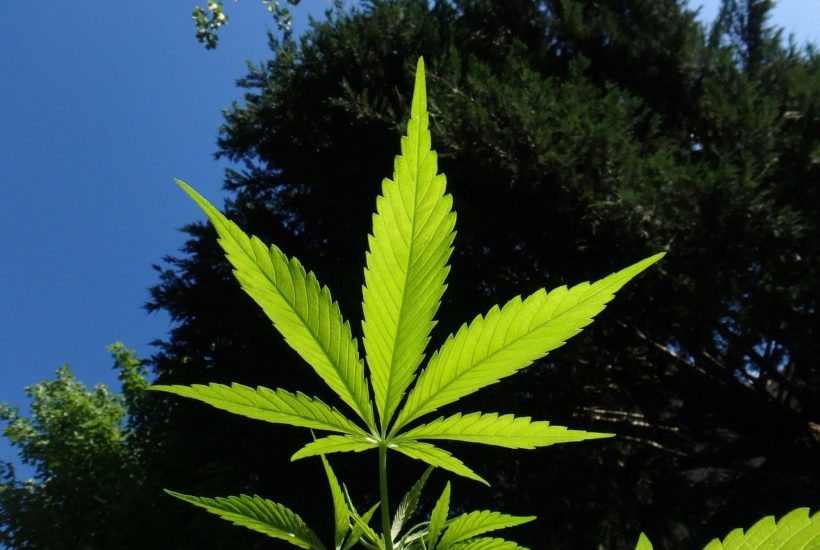Cannabis
Approval of responsible use of cannabis would generate revenues of 18.7 billion pesos in Mexico
An analysis by the Center for Public Finance Studies estimated that the collection would be $722,000 (15.54 million pesos) in IEPS, $71.000 (1.53 million pesos) in VAT and $75,700(1.63 million pesos) in ISR. In the United States it is estimated that 24 billion will be obtained under the concept of medical and recreational cannabis, according to Brightfield Group.

On March 8th, the House of Representatives will vote in united commissions on the ruling on the adult and responsible use of cannabis; in such a way that the Centro de Estudios de las Finanzas Públicas (CEFP) estimated that if the document is approved and the Federal Law for the Regulation of Cannabis is enacted, there would be a collection of $868.8 million (18.7 billion pesos).
In this projection, the center broke down the collection by taxes and therefore calculates, at 2021 prices, that $722,000 (15.54 million pesos) would be under the Special Tax on Production and Services (IEPS);$71,000 (1.53 million pesos) in Value Added Tax (VAT), and $75,700 (1.63 million pesos) in Income Tax (ISR).
The CEFP considered as an assumption a tax for IEPS on the sale of cannabis of 160% of the value for a package authorized for personal use (28 grams), as well as a fee of 0.5 pesos per gram of cannabis (taking as a reference the rate and fee established for cigarettes in Article II of the IEPS Law), a 16% VAT rate of the price per gram of cannabis; and in the case of ISR, a 30 percent rate was considered.
On the other hand, actions to promote information on the risks of psychoactive cannabis consumption would amount to $139,480 (3 million pesos). The training mechanisms for health personnel for the attention of consumers would cost $3.8 million (82 million pesos), and the enabling of the platform for the pre-registration of cannabis seeds would cost $3.63 million (78 million pesos).
Last Friday, the creation of the Mexican Institute for the Regulation and Control of Cannabis was eliminated from the ruling, said the institute was going to cost more than $37.6 million (810 million pesos), and since it did not have the budget contemplated, it was decided that the Ministry of Health, through the National Commission Against Addictions (Conadic); the Ministry of Agriculture and the Federal Commission for the Protection of Sanitary Risks (Cofepris) will be the ones to exercise the steering role over the productive chain of psychoactive cannabis, its derivatives and consumption.
Read more about the legalization of cannabis in Mexico and find the most important cannabis news in the world with the Hemp.im mobile app
Permits and licenses
The document revealed that there will be six types of licenses that will cover each link in the cannabis production chain.
“While this is an advance, I do not think it fulfills the function it should. For example, licenses for consumers. We don’t have licenses to buy alcohol or buy cigarettes. It is a discrimination for cannabis users,” commented Pedro Morales, coordinator of the Mexican Cannabis College.
For the interviewee, the plant still has myths and stigmas that have no reason to exist, as in the case of hemp.
“The issue of the license with respect to hemp is an exaggeration. In the ruling the difference between hemp and marijuana, is that hemp has 1% THC (psychoactive component of the plant), this measure is extreme. In international measures it is 0.3%,” he commented.
“With respect to the T-MEC it must be remembered that in the case of hemp it is legal in the United States, since 2018, then Mexico could be an exporter of raw material or products of this nature,” he said. For a possible export of industrial hemp, it will be necessary to have the authorization of the Secretary of Agriculture.
In the United States it is estimated that 24 billion will be obtained under the concept of medical and recreational cannabis, according to Brightfield Group.
__
(Featured image by rexmedlen via Pixabay)
DISCLAIMER: This article was written by a third party contributor and does not reflect the opinion of Born2Invest, its management, staff or its associates. Please review our disclaimer for more information.
This article may include forward-looking statements. These forward-looking statements generally are identified by the words “believe,” “project,” “estimate,” “become,” “plan,” “will,” and similar expressions. These forward-looking statements involve known and unknown risks as well as uncertainties, including those discussed in the following cautionary statements and elsewhere in this article and on this site. Although the Company may believe that its expectations are based on reasonable assumptions, the actual results that the Company may achieve may differ materially from any forward-looking statements, which reflect the opinions of the management of the Company only as of the date hereof. Additionally, please make sure to read these important disclosures.
First published in EL ECONOMISTA, a third-party contributor translated and adapted the article from the original. In case of discrepancy, the original will prevail.
Although we made reasonable efforts to provide accurate translations, some parts may be incorrect. Born2Invest assumes no responsibility for errors, omissions or ambiguities in the translations provided on this website. Any person or entity relying on translated content does so at their own risk. Born2Invest is not responsible for losses caused by such reliance on the accuracy or reliability of translated information. If you wish to report an error or inaccuracy in the translation, we encourage you to contact us.

-

 Biotech2 weeks ago
Biotech2 weeks agoEurope’s Biopharma at a Crossroads: Urgent Reforms Needed to Restore Global Competitiveness
-

 Africa1 week ago
Africa1 week agoFrance and Morocco Sign Agreements to Boost Business Mobility and Investment
-

 Impact Investing2 weeks ago
Impact Investing2 weeks agoItaly’s Listed Companies Reach Strong ESG Compliance, Led by Banks and Utilities
-

 Fintech4 days ago
Fintech4 days agoFindependent: Growing a FinTech Through Simplicity, Frugality, and Steady Steps

























